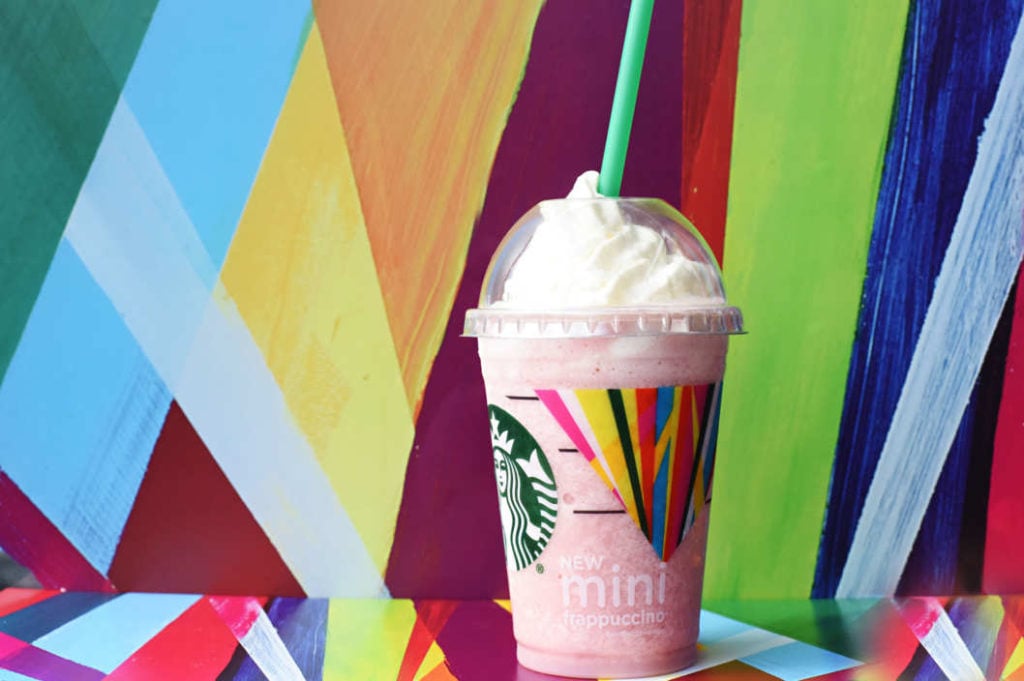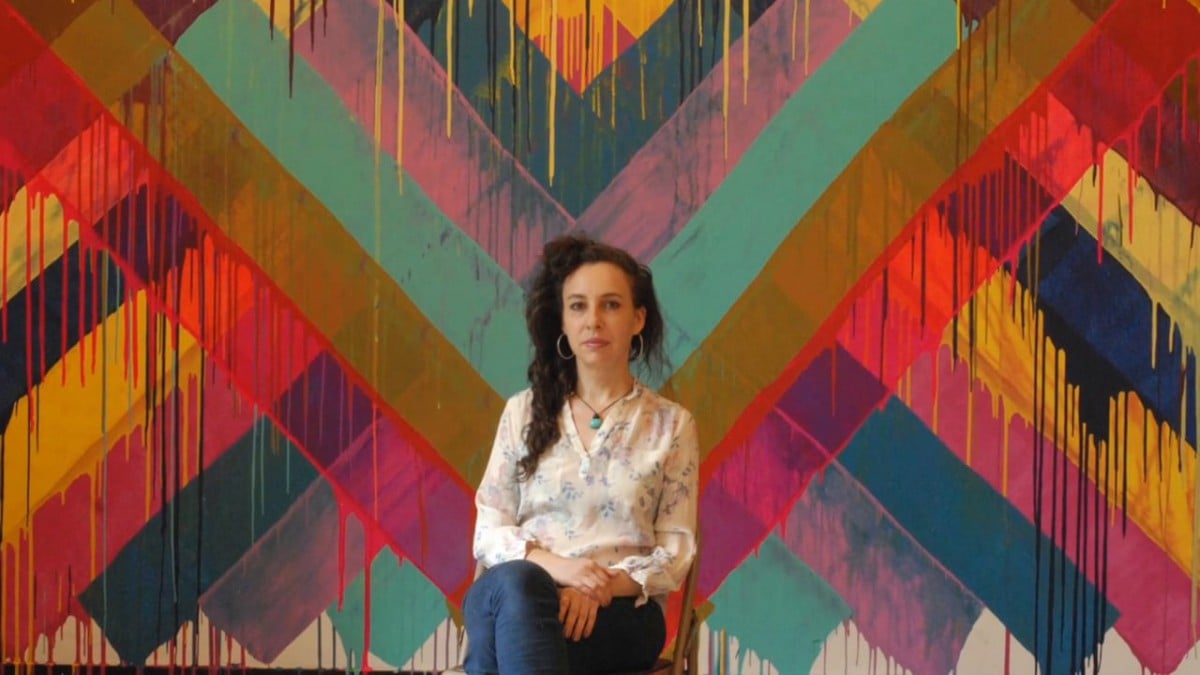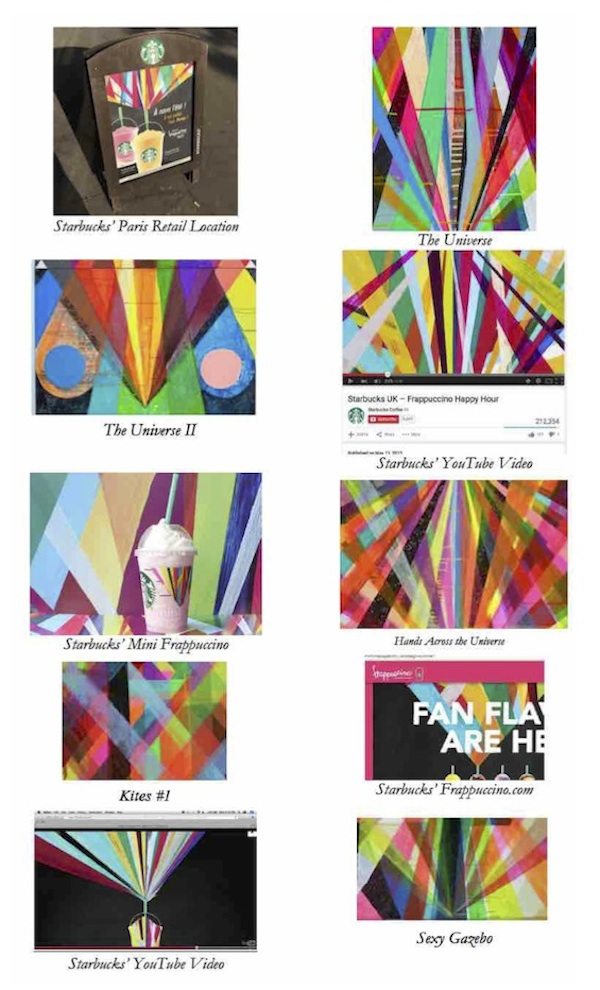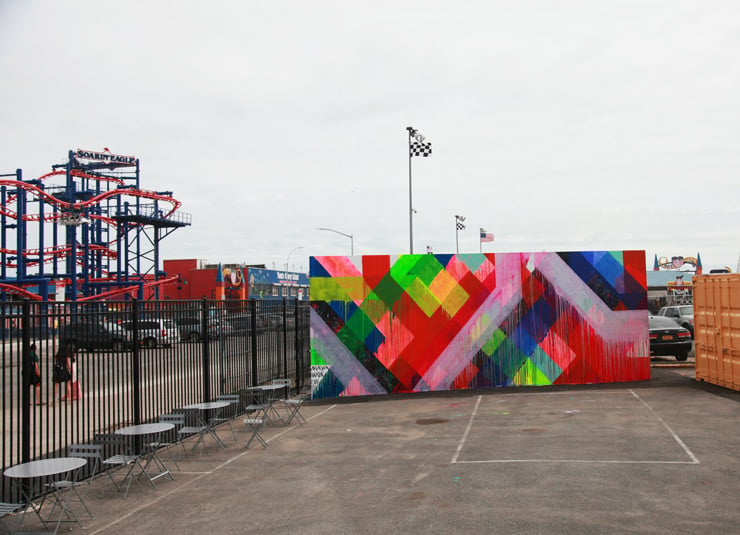Law & Politics
Frappuccino Lawsuit as Brooklyn Artist Sues Starbucks for Stealing Her Artwork
Can Starbucks really just steal an artist's work?

Can Starbucks really just steal an artist's work?

Sarah Cascone

What happens when fair use meets fair trade? A lawsuit is brewing against Starbucks on copyright grounds. Brooklyn-based street artist Maya Hayuk is suing the coffee giant over a colorful new ad campaign she alleges infringes upon her jewel-toned, geometric artwork.
According to Hayuk’s complaint, Starbucks reached out to her last fall through California ad agency 72andSunny about potentially using her work to promote its new Mini Frappuccino. “We love your work,” they allegedly told her.

Maya Hayuk.
Photo: ColumbiaNews, via Vimeo.
While a non-disclosure agreement allegedly prevents her from describing her dealings with the company in detail, Hayuk maintains she declined the offer.
Undeterred, “Starbucks brazenly created artwork that is substantially similar to one or more of Hayuk’s copyrighted works and used the substantially similar art for the Frappuccino campaign,” she claims. “The Frappuccino Campaign is essentially identical to the Starbucks campaign 72andSunny proposed to Hayuk.”
“More than anything, she was just saddened” by the company’s appropriation of her work, said Hayuk’s lawyer, Aaron Silverstein, to the New York Post.
The complaint singles out five paintings created by Hayuk between 2009 and 2011, and offers a fairly compelling side-by-side comparison between the works and elements of the Mini Frappuccino advertising materials.

Side-by-side comparison between Maya Hayuk’s artwork and elements of Starbuck’s Mini-Frappuccino promotional campaign.
Photo: Maya Hayuk.
Reportedly, Seattle-based Jordan Kay, in-house artist for Starbucks, created the campaign’s artwork, seemingly riffing on the kaleidoscopic, brightly-colored radiating beams that are Hayuk’s signature. Kay’s website currently features mostly figurative artworks in muted watercolors.
“The scope and reach of the Frappuccino campaign is staggering,” the complaint argues. Hayuk claims the infringing ads and promotional materials can be found on the company’s website in the US, UK, Canada, France, and Germany, “in print advertising; on product packaging; and in many, if not all, of Starbucks’ over 21,000 retail locations in 66 countries.”
The complaint also cites the chain’s reported $2 billion in annual Frappuccino sales: “Clearly, Starbucks is using the Infringing Frappuccino Campaign Artwork to gain significant financial benefit, all to Hayuk’s detriment.”

Maya Hayuk’s Bowery mural as featured in a Coach ad campaign.
Photo: Coach.
Hayuk is not one to shy away from a fight if she feels her work is being misappropriated. This past summer, she sued both singer-songwriter Sara Bareilles and luxury brand Coach for featuring her temporary Bowery mural, Chem Trails NYC, in advertisements without her permission.
“When things like this happen, it cheapens the value of the art—it’s really true,” added Silverstein. “And her only source of income is her art.”

Maya Hayuk’s mural for “Coney Island Walls.”
Photo: Jamie Rojo, courtesy Brooklyn Street Art.
Currently, Hayuk’s work can be seen at Coney Island, in the Jeffrey Deitch–curated “Coney Island Walls” street art exhibition.
In her current suit, Hayuk is seeking an injunction against the ad campaign, damages up to $150,000 per infringed-upon painting, and a share of the Mini Frappuccino profits